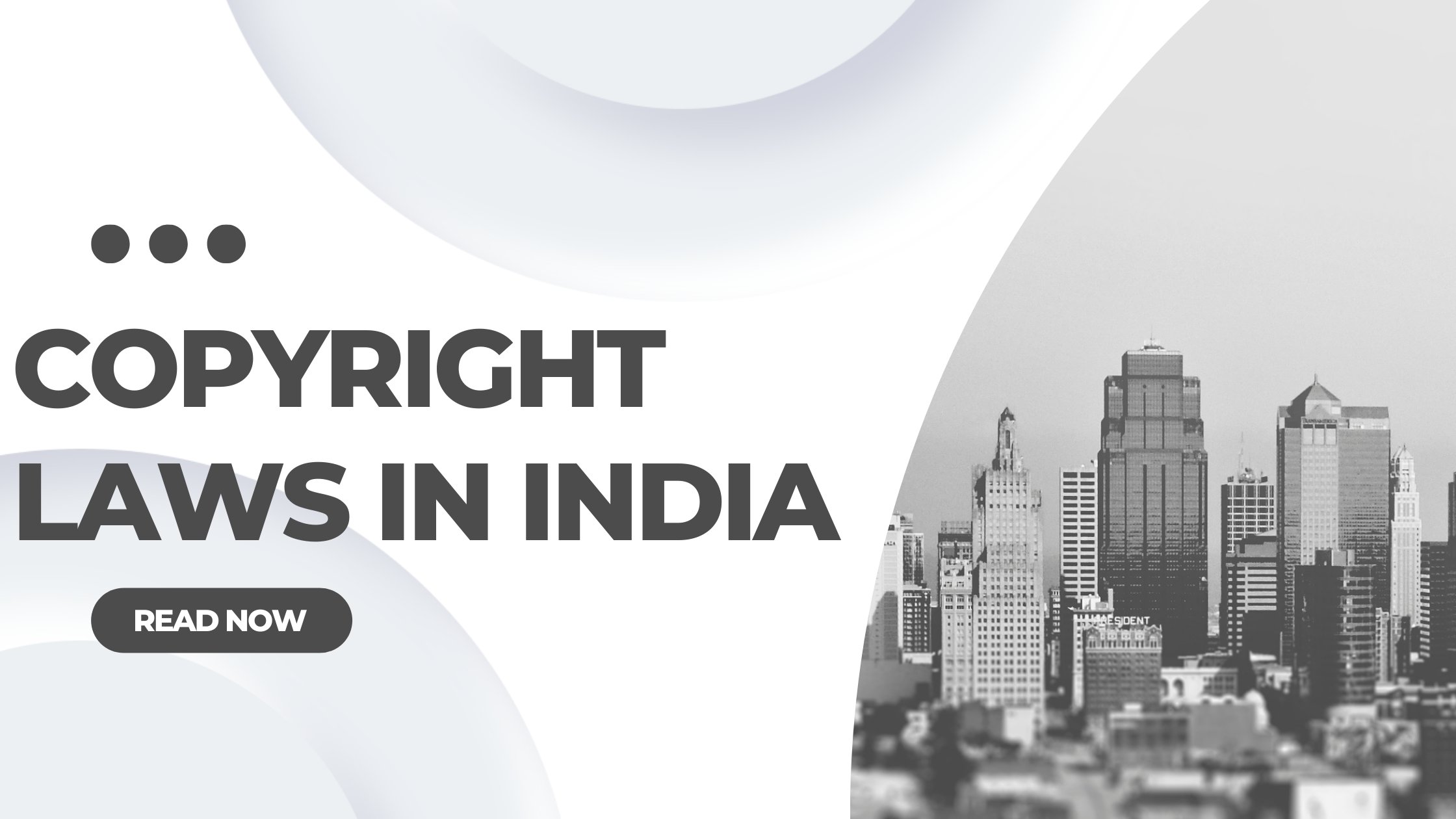COPYRIGHT LAWS IN INDIA
Every person born in this world is an artist. Some are good at cooking, singing, painting etc., every artist wants that her piece of work should be protected from infringement. It means that she wants that credit for that piece of work should go to the original creators and not to the copycats. In this time of the internet, people have evolved themselves. They have developed their talent with the help of the internet. Through this people have made their creations public and have earned huge names and fame. To protect our creations, we must be aware of the copyright laws in our country so that we can stand up for our rights in case of violation.

INTRODUCTION
Intellectual property refers to a property which is made by human intellect. It refers to a piece of work where humans have invested their time, money and labor which is capable of being sold, mortgaged or purchased.
The rights which are granted to the creator of the work are known as intellectual property rights. Through these rights, the original creator can use her work in a way she desires and excludes strangers from using it.
In order to use that piece of work, a stranger has to take permission from the original creator. In India, The Copyright Act, 1957 protects original literary, dramatic, musical, artistic works, cinematograph films and sound recordings from unauthorized uses.
REVIEW OF LITERATURE
Copyright refers to a plethora of rights which is given to the creator by law which includes the rights of communication to the public, reproduction, translation of the work, and adaptation.
Unique work is a direct result of a person’s creativity and this creativity should be protected at any cost. Therefore copyright should be protected. For a country to progress it's very cardinal that its citizens should think out of the box rather than copying each other’s piece of work.
However, applying copyright protections strictly will hamper economic development. For this, a balance must be strike between the interest of an individual and copyright owners.
Copyright provides protection of the original creators but has the same exceptions as well.
The exceptions are as follows –
-
or the purpose of research or private study,
-
for criticism or review,
-
for reporting current events,
-
in connection with judicial proceeding,
-
performance by an amateur club or society if the performance is given to a non-paying audience, and
-
The making of sound recordings of literary, dramatic or musical works under certain conditions.
Copyright owners has following rights –
-
Right of Reproduction- this right is granted to the original creator to produce copies of the protected work in a way she desires.
-
Right to distribute - the creator of the work can distribute the copies of his creation in a way she likes.
-
Right to make Derivative Works- the right to use his work in various ways, like making adaptations or translations.
-
Right to Publicly Perform- it means that the creator can perform her work in public which includes the right to broadcast.
-
Right to Follow- the authors to obtain a percentage of the subsequent sales of his work
-
Right of Paternity- claim authorship of the work when due credit is not given
-
Private Copying- copies can be made for educational purposes and not economic purposes.
-
Sui Generis Rights- grants rights for the protection of software and databases.
Earlier the copyright protection was only of 50 years but after the Copyright (Amendment) Act 1992, it has been now 60 years.
RESEARCH METHODOLOGY
This blog is of descriptive nature and the research is based on secondary sources. Secondary sources of information like newspapers, case laws and websites are used for the research.
COPYRIGHT INFRINGEMENT
Whenever an unauthorized person uses the work of the original creator which is copyright protected without permission is called copyright infringement. She does so in order to gain fame, name, money etc.
In order to proof copyright infringement, two things are of utmost importance to be proofed –
-
Ownership of valid copyright
-
Copying of constituent work which are original
LAWS GOVERNING COPYRIGHT IN INDIA
The primary law which governs copyright in India is The Copyright Act, 1957. Section 51 of The Copyright Act 1957 talks about copyright infringement. Section 63 of The Copyright Act, 1957 makes it a criminal offence. The minimum punishment for infringement of copyright is imprisonment for six months with the minimum fine of Rs. 50,000/-. In the case of a second and subsequent conviction the minimum punishment is imprisonment for one year and fine of Rs. one lakh.
CONCLUSION
The main aim of protecting the work of the creator is to protect it from reproduction and exploitation from unauthorized courses. This builds up a conducive atmosphere in the society which enhances creativity.
Written by:
Rupam Banerjee.












